Gray (Book 1) Read online
Page 12
A couple she tried as bait, but when still no fish touched the line, she bagged the rest of the worms. Her pamphlet had said to cook them. The grubs, it said, were fine raw. She held her breath and swallowed one, gagging. Chewing it was beyond her. Maybe in a week of eating bugs, she’d be able to bring herself to chew them and find their taste and texture a delight. Not today. At least neither worms nor grubs had lots of long legs. She didn’t know if she could force little wiggling legs down her throat.
The rest of the day while the line sat in the water, terribly still, she dug for worms and swallowed grubs.
When she returned to the house, she walked into the kitchen. Benjamin was there, standing at the sink, washing his hands from a metal pitcher.
He turned. A look of relief passed over his face before he schooled it again into his usual flat expression.
Coral was relieved to see him, too, but she thought he probably didn’t want to hear that. “I’ve done awful at fishing,” she said. “I hope you’ve done better than me.”
He leaned against the counter and looked at her. “This is not the time to be a picky eater.”
What could be worse than worms? “I can manage,” she assured him.
“I got two snakes, almost a dozen frogs, and some snails.”
“Okay. Good. I have some worms, only a cup or so of them. I think we can eat them if we cook them.” She thought for a moment. “Don’t the French think snails and frogs are a delicacy? And I hear snake tastes just like chicken.”
“You hungry enough, you’ll like them better than steak.”
“I’m hungry enough,” she promised him. “Thank you for finding them.”
“It’s only a day’s worth of food, maybe a day and a half. I ate some of what I caught. Had to. I’ll need to go out again tomorrow. Which creek did you fish?”
“Both.”
“That’s good. There’s no one left alive there,” he said
“Where?”
“In Mill Creek. This morning, I went there and looked for that guy who attacked you—or for anyone else.”
Her throat felt suddenly dry. “Nobody was there?”
“Not a soul.”
“You’re sure?”
“Yeah, not even a sign anyone had been there recently. No footprints.”
“Did you see any animal tracks?”
“Nothing beyond those of what I caught. Nothing large. No human tracks, either.”
They ate the snakes and worms for supper. The snakes were a little chewy, but a pleasant taste change from the fish and venison and far superior, Coral thought, to the worms. Still, a snake per person per meal, even if they could find that many every day, wasn’t nearly enough to fill their empty bellies.
The next morning she asked him to show her how to shoot her rifle. He showed her how to clean it first. Then how to load and unload. And he showed her on his, too. Then he took her one bullet, held it up, and said, “We have to find you more ammo.”
He made her dry-fire the rifle. She aimed and pointed and pulled the trigger hundreds of times, not knowing if it’d help when push came to shove, when her life was at stake. But at least after that day, the weapon was more familiar to her. After a dinner of frogs and snails, Benjamin said he was going to leave again the next morning to hunt, try the next valley over.
As soon as he was gone, with her daypack on his back, she packed for overnight again, re-loaded the one bullet, and hiked back to Mill Creek, making her way downstream toward the town. She still kept only ahead of her own food needs, catching a few tiny fish that she ate raw. She sucked the bones until they were clean, but this time she kept all the bones to take back and make stock of. It’d be something—almost no calories, but warm and fishy tasting—and it might convince them they were eating real food.
The hunger was ravenous, and painful, and it nagged at her mind every waking moment now. If she woke up in the middle of the night, it kept her from falling back asleep for hours. She hadn’t discussed it with Benjamin, though—surely he felt the same, and talking about it wasn’t going to make them feel any better.
While she watched the propped-up rod, sending out positive and welcoming thoughts to any fish swimming by, she worked on making arrows for her bow. Again, the trial and error method led her to make better arrows each time. She felt less impatient than she had about the bow. It’s not as if she had any appointments to keep. May as well try and enjoy the process of learning something new. At least it kept her partly distracted from the gnawing hunger.
Experiments on flaking rocks into arrowheads failed completely. She knew nothing about flintknapping, and the instructions in her hunting pamphlet were too brief to be useful. It also said that sharpening an arrow and heating the wooden point to cure it would make a reliable weapon for small game. For now, she stuck to wood points sharpened on rocks, telling herself that if she needed to, she could try again to make arrowheads. Without game to hunt, this was all an academic exercise anyway.
As she fished and worked on her arrows, snow continued to fall all day, and the warm spell that had melted the first snowfalls every day did not recur. Coral worried less about how cold she felt at night, even sleeping in all the clothes she owned, and more about losing her way back to the house as the snow, for the first time, covered her tracks. The snow accumulated not in beautiful white mounds, but in a lumpy gray blanket. Once the snow stopped, it turned darker as more ash settled on it. Maybe that meant the air was slowly clearing, but the world below was getting more and more gray. At points, there were drifts of fallen ash three feet deep. How much more could there be up there to fall?
Benjamin had found her a string to try as a bowstring, and she strung her lesser bow and tried to learn to fire an arrow. She was so bad at first, she was glad no one was around to witness the comedy. Laughing at herself was one thing—and she did laugh at herself—but she was grateful she didn’t have an audience.
Finally, after a long while of working at it, trying little adjustments, failing, adjusting again, she was able to fire an arrow in the general direction she was aiming. As she got better, she narrowed her targets to specific clumps of burned bushes. By the end of the day, she was hitting within a few inches of where she aimed—if, that is, she was using her very best arrows. She gathered up every arrow she shot, but some had broken when they hit the ground.
She changed her fishing spot every few hours, stopping as soon as she caught sight of the bridge to town, then heading back upstream. Benjamin might have said the town was clear, but it was still a place of fear for her. Finally, she found a spot where fish began to bite, and she fished until they quit, eating the five tiny trout she’d managed to find, but still not feeling nearly full enough, and having nothing to take back with her.
The next day, she set about learning the ways of the better bow. The last morning, she skipped breakfast, saving the few small fish she caught with worms to bring back to the house, along with all the bones from the previous day’s catch. If Benjamin was there, she’d make fish stew and give most of it to him. If he wasn’t there, at least she would have enough to see her through one more hungry day.
Food was on her mind all day long, a thought simmering and nagging at her. The hunger poked her in the gut all the time.
When she hiked back to the house, after only one bad moment where she feared she was lost, Benjamin wasn’t home yet. She took the last hours of daylight to wash clothes. In the hall closet, she found a stack of towels and wore two of those as shirt and sarong, her wool sweater over both, while she scrubbed all her clothing in the downstairs bathtub. Shivering from the cold, she hung them to dry and wrapped herself in the blanket from her bed. It still wasn’t warm enough, so she climbed into her sleeping bag and put the blanket and the dry towels from the linen closet over herself. It took all evening to get warm enough to quit shivering and fall asleep.
By the end of the next afternoon, her clothes were barely damp, but she put them back on anyway, staying wrapped in the blanket, hopin
g her body heat would finish drying the clothes.
Benjamin came back at last light. He looked unhappy. “Nothing,” he said. “I couldn’t find a thing.”
“There’s fish stew. You have it. You must be starved.” She had gone without food all day.
“I’m hungry. Sure you don’t want some of it?”
“No, you go on. It’s in the covered pot on the kitchen counter. At least the cold weather means the food won’t go bad.”
At the end of the meal, which he ate in silence, she brought up the topic she knew they were both thinking about. “What are we going to do for food?”
“I don’t know.”
“We should leave, go someplace where there is food.”
“Where would that be?”
“We should check everything in Mill Creek, all the ruins. Maybe there are cans of food.”
“I looked around in the stores when I was there, the gas stations, the convenience store, places like that. I know the town, so I knew where to look. I even looked in a couple of the less-destroyed houses. Didn’t find a thing.”
“Damn.”
“Where’d you get those cans of vegetables?”
Coral took told him about the storm shelter and the supplies, but not about the kid’s body. “I took all the food there was, I’m afraid. So I’m not a killer, like you worried, or a cannibal. But I admit that I’m a thief.”
Benjamin studied her for a long time before answering. Finally, he said, “I was never saying that you did anything wrong in Mill Creek. Staying alive is never wrong.”
She wasn’t sure that was a philosophy she agreed with, not even now, but she let that thought pass. She knew he was offering her an olive branch, asking her to forget his suspicions. She accepted it for what it was. Holding his gaze, she nodded. Strain showed around his eyes. “You must be tired,” she said.
He nodded.
“Go on down, then. Sleep. There’s nothing much to clean up here, anyway.”
He eased himself up and left the kitchen. Coral sat alone staring out the window until the light was nearly leeched from the sky. Then she went to bed, too.
*
The next morning, the temperature hovered around freezing, even downstairs. It was still better sleeping down there than on the ground, where gusts of wind would make her miserable, but Coral was worried about the falling temperatures. If this was the height of summer, what would November or January be like? Benjamin was exhausted from his trip, but soon, today, they needed to have a discussion about what to do next.
After more lonely days fishing and working on her bows and arrows, she knew she didn’t want to be alone. She would leave alone, if he refused to go, but she didn’t want to. She wanted him to come with her.
She went outside with her bow and arrow, shooting at targets she had built from burned debris she had hauled out of the junk pile, anything soft enough to shoot at without destroying the arrows in the process. The best of her arrows, the ones that flew straight and true, she was growing emotionally attached to, as odd as that would have seemed to the old Coral, the pre-Event Coral. A good arrow was more useful than a smart phone now, that was for sure.
Benjamin came out well after sunrise and observed her practice, saying nothing. She watched him out of the corner of her eye, trying to read his mind. Was he impressed, entertained, disgusted? With Benjamin, it was hard to tell. His expression gave away little.
She shot her last arrow. With a soft whop, it stuck in the target, leaving a tight group of five arrows with others scattered to the outside. Not bad for a beginner. She walked over to gather her arrows, stacking them in her hand then checking them for damage.
“What are we going to do about the cold?” she asked, turning to Benjamin.
“Nothing to do,” he said.
“I mean, to stay warm. And what about food?”
Slowly, he shook his head. “I’m not sure.”
That surprised her. Somehow, she had come to believe he’d have a creative solution for every problem. Wordlessly, she started shooting another round of arrows at her target.
He broke the silence. “You think you could shoot an animal with those?”
“That’s the idea,” she said, fitting another arrow to the bowstring. “If I ever see an animal again.”
He watched as she shot her last arrows. Then he said, “I’m thinking we should leave.”
Shocked, she turned to him. “What?”
“I gave it a lot of thought while I was gone. We should leave, like you said. Go west, drop some in elevation, hope for warmer weather. Hope for more surviving animals.”
“Do you think there are any game animals left to the west?”
He held his palms up, dropped them. “Honestly, I don’t know. We could be walking away from our only safe shelter. We could be walking into some worse death than starvation.”
She touched her flat belly, aware, as always, of the hollowness inside. “Starvation sounds like about the worst I can imagine.”
“You realize, don’t you…” His voice trailed off.
“What?”
“You realize we are going to die.”
She notched an arrow, turning away. “Everyone does, sooner or later.”
“Sooner,” he said. “I think for us, it’s going to be sooner.” His voice was gentle.
She released the arrow then turned to face him. “We can’t just give up.”
“No,” he said. “But the world is dying around us. Species are going to become extinct. Humans may well be one of them.”
“Well, good morning Mr. Sunshine,” she said.
He barked a surprised laugh. The smile faded from his face. “Ignoring the facts isn’t going to help.”
“I’m not ignoring the facts! I wanted to go before this, if you remember.”
His mouth stiffened, and she was sorry she hadn’t kept her mouth shut. “I didn’t want to leave the water supply and shelter, is all. But I was mistaken. We should have gone ten days ago. Happy?”
“Sorry. I didn’t mean ….” She had been relying, maybe too much, on his steadiness. Without him ever saying a word, without bragging or making promises, he had exuded a certainty that every challenge could be met, that everything was under control. His quiet strength had shored up her own, and she didn’t like losing it to this fatalism. “So we’re going together?”
“Yes. It’ll take a day or two to prepare, but I think we should go as soon as we can.”
Chapter 12
Coral was relieved she was moving on and that Benjamin had agreed to go with her. Two would be safer than one, alone. She trotted upstairs the next morning, ready to make plans and get moving. “Where do you think we should go? West? Or is south better?”
“South is too mountainous, and it gets dryer and dryer the further you go. We have to stay close to water. And our best chance of finding manufactured food is going to be in cities. Still, we need to not just skip into big cities without knowing what’s there.”
Like I did, you mean. “So where are we going? I don’t know Idaho well at all. I’ll rely on you for a direction, a destination.”
“The way I see it,” Benjamin said, scratching his beard as he thought, “there are two choices. We can go mostly north, toward Pocatello, cautiously check for canned food there, and go over and catch the Snake River from there. Or we can head west now and cut northwest to the Snake, avoiding the city. The problem with that is there are a couple lines of mountains to cross to the west. The weather could be a problem, and if it snows too much, and we’re up high, we could regret that decision.”
She nodded. “Will it be warmer as we go west?”
“When we get down into the Snake river valley, a little. But to get out of the cold, we might have to go to the ocean, then turn south hundreds of miles.”
“How long will that take, do you think, to walk all the way to the Pacific?” She hoped that wouldn’t be necessary.
“I don’t know. To Boise, it’s going to take us ma
ybe three months, at a guess. To the ocean, six months or a year beyond that. That’s assuming we can find food.”
“Why so long? I can walk twenty miles a day.”
“You were doing that much getting here from the cave?”
She didn’t want to think about that, but she had to be realistic. She felt herself sag with disappointment. “No. More like five on a good day, taking time to fish. And if there’s no food, I don’t know if I could do even that much.”
“And we’ll have a big load to haul. Over rocky mountain ridges, sometimes. With snow on the ground to wade through on the flats. And, like you say, we’ll have to stop to fish and hunt, probably every day. It could be we don’t average more than two or three miles a day for awhile.”
The optimism she’d felt upon waking was nearly drained away now. “If we can even find anything to hunt.”
“If we find plentiful food anywhere close to home, I’m going to turn around and come right back. You’d be wise to come with me. There’s shelter here, living space underground, and that’ll help us survive the cold. If not, we’ll have to move on every day and hope we can find enough food to keep on our feet.”
Coral didn’t like the idea of coming back here, not at all. To do what? Live here until spring and clear skies, not seeing another person, her family not knowing if she was dead or alive? If there were any way to move forward, she would. “Can we get going tomorrow?”
“No way. First of all, we need to gear up, figure out what we need.”
“I don’t know if I can carry much more than I walked in here with. And you don’t have a good pack, do you?”
“Won’t need packs,” he said. “I’ll make a sled, so we can pull the load over the snow.”
“And if the snow melts?” There were only four or five inches on the ground. One warm day would take care of that.
“That’s not going to happen.” He seemed certain of it.
*
Benjamin ‘s room stood at the other end of the hall downstairs. He led her there to start scavenging.
“Was this the owner’s bedroom?” she asked.

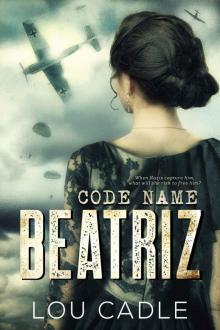 Code Name- Beatriz
Code Name- Beatriz Oil Apocalypse Collection
Oil Apocalypse Collection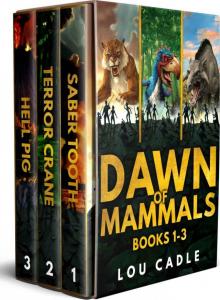 A Dawn of Mammals Collection
A Dawn of Mammals Collection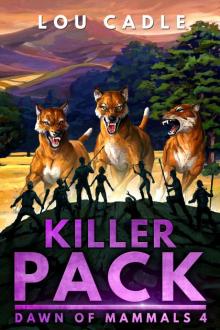 Killer Pack (Dawn of Mammals Book 4)
Killer Pack (Dawn of Mammals Book 4)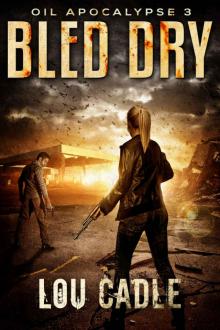 Bled Dry
Bled Dry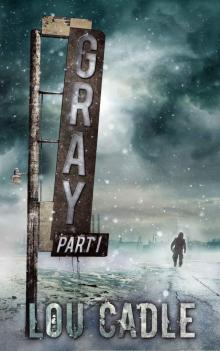 Gray (Book 1)
Gray (Book 1) Dawn of Mammals (Book 4): Killer Pack
Dawn of Mammals (Book 4): Killer Pack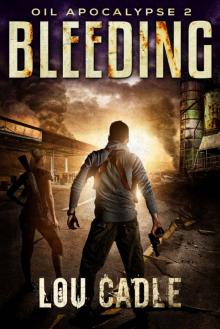 Bleeding (Oil Apocalypse Book 2)
Bleeding (Oil Apocalypse Book 2)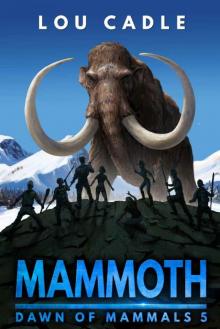 Dawn of Mammals (Book 5): Mammoth
Dawn of Mammals (Book 5): Mammoth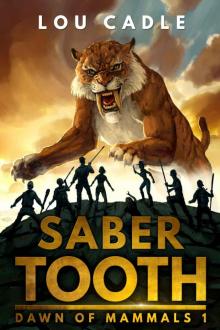 Saber Tooth (Dawn of Mammals Book 1)
Saber Tooth (Dawn of Mammals Book 1)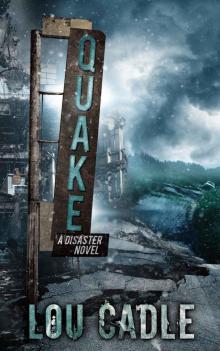 Natural Disaster (Book 2): Quake
Natural Disaster (Book 2): Quake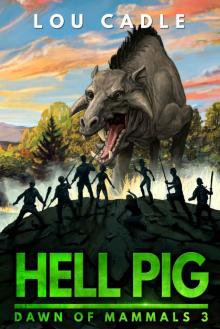 Hell Pig (Dawn of Mammals Book 3)
Hell Pig (Dawn of Mammals Book 3)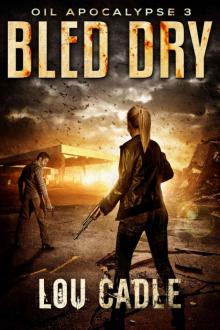 Bled Dry (Oil Apocalypse Book 3)
Bled Dry (Oil Apocalypse Book 3)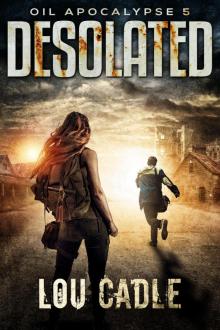 Desolated
Desolated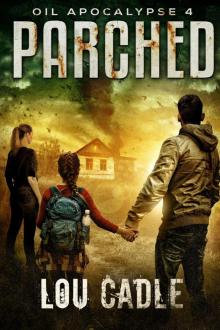 Parched
Parched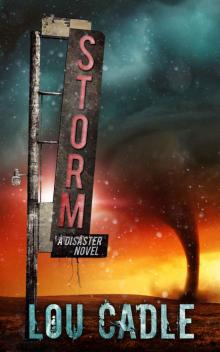 Natural Disaster (Book 3): Storm
Natural Disaster (Book 3): Storm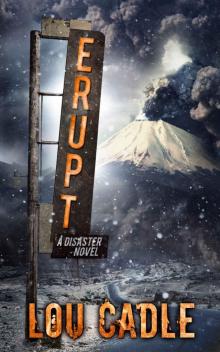 Natural Disaster (Book 1): Erupt
Natural Disaster (Book 1): Erupt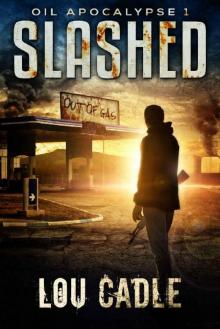 Slashed (Oil Apocalypse Book 1)
Slashed (Oil Apocalypse Book 1)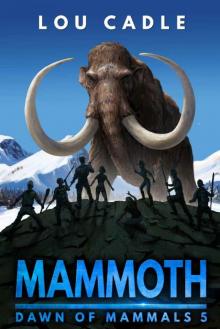 Mammoth (Dawn of Mammals Book 5)
Mammoth (Dawn of Mammals Book 5)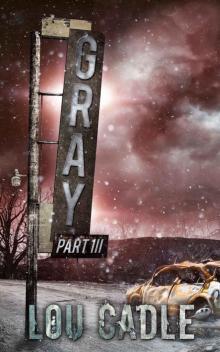 Gray (Book 3)
Gray (Book 3)